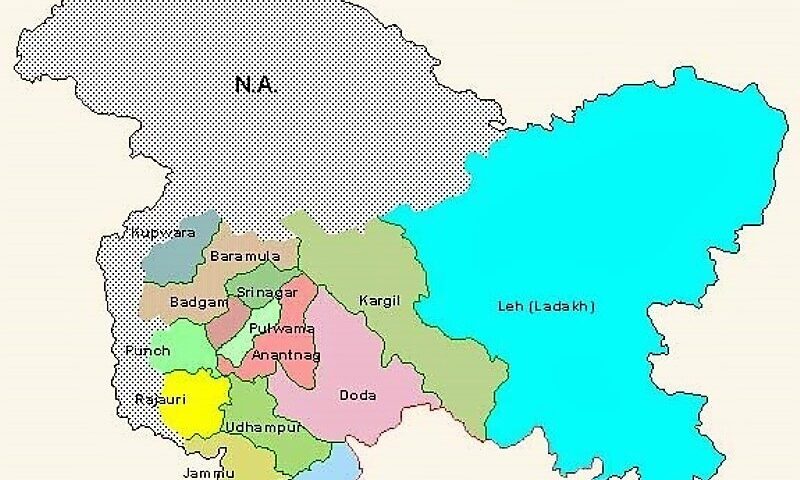Safe Food Now: J&K FDA Bans Synthetic Colours in Wazwan & Ready-to-Eat Foods
By: Javid Amin | Srinagar | 08 Aug 2025
Why This Matters Now
In early August 2025, following alarming lab reports, Jammu & Kashmir’s Food and Drug Control Organisation (DFCO) issued a bold prohibition on synthetic food colours in beloved dishes—particularly Wazwan, biryani, kebabs, pickles, and other ready-to-eat meats. This urgent step reflects a growing concern for public health in Kashmir’s vibrant culinary scene.
Behind the Ban: Test Findings & Legal Backdrop
The ban was triggered by test results from the National Food Laboratory in Ghaziabad, revealing hazardous levels of Carmoisine, Tartrazine, and Erythrosine—three synthetic dyes banned under Regulation 3.1.2 and Appendix A of the Food Safety and Standards (Food Additives) Regulations, 2011.
These findings compelled DFCO to act swiftly, citing Section 59 of the Food Safety and Standards Act, which allows for imprisonment of up to 3 months and fines as high as ₹3 lakh for violations.
What’s At Stake: Health Risks of Synthetic Colours
Synthetic dyes—especially those derived from petroleum—may seem harmless but can pose serious threats:
-
Allergic reactions such as hives (Tartrazine/Yellow 5).The Free Library
-
DNA damage or carcinogenic effects (Red 3, Blue 1/2, Citrus Red 2) based on lab studies.
Given repeated consumption of these brightly coloured dishes, the long-term risks are concerning—from hypersensitivity to potentially serious chronic illnesses.
Legal Consequences & Regulatory Guidelines
Violations invite penalties under Section 59 of FSS Act 2006: up to 3 months imprisonment and ₹3 lakh fine.
DFCO’s directive makes it clear: All Food Business Operators (FBOs)—from street vendors to upscale caterers—must immediately cease using banned colours and ensure compliance with food safety norms.
Enforcement in Action: Seizures and Sanctions
Recent operations underscore DFCO’s resolve:
-
Adulterated Rasgullas: ~440 quintals in 2,750 tins seized from an unlicensed cold storage in Bishnah.
-
Rotten Meat: Approximately 1,200 kg of decomposed meat confiscated near Srinagar’s Zakura Industrial Estate.
-
Broader Tainted Supply: Over 51,000 kg of unsafe food—including fake cheese and sweets—was recovered across J&K.
-
Destroyed Adulterated Meat: More than 3,500 kg of decayed meat, kebabs coloured with banned dyes, and unlabelled meatballs were eliminated.
These seizures are matched by vows of stringent surveillance, legal action, and sealing of unsafe outlets.
Impact on Vendors, Restaurants, & Consumers
-
Restaurants & Vendors: Business owners face loss of stock, potential raids, and legal risk.
-
Customers: Footfall has reportedly dropped by up to 75% in locales like Khayam, Srinagar, as fears grow around meat safety and halal compliance.
-
Religious and Ethical Concerns: Mirwaiz Umar Farooq and Grand Mufti Nasir-ul-Islam condemned the misuse of potentially haram meat, issuing a fatwa forbidding its sale or consumption.
Voices From the Community
-
Regulatory Officials: “The adulterated sweets and meat pose a serious risk to consumer health,” emphasized FDA leadership.
-
Health Experts: Medical practitioners warn of long-term harm from repeated exposure to banned additives.
-
Public Sentiment: Social media buzz reflects a collective call for greater transparency and trust—“Don’t eat with your eyes, eat with awareness.”
What Comes Next: Recommendations & Awareness Drive
For Authorities:
-
Expand regular inspections and random testing, especially ahead of holidays and festivals.
-
Introduce mobile food testing units (FoSCoS) and increase lab capacity.
For FBOs:
-
Shift to natural colourants—like saffron, beetroot, turmeric—or avoid colour additives altogether.
-
Maintain hygiene, proper licensing, and chain-of-custody records.
For Consumers:
-
Prefer vendors with visible licensure and hygienic practices.
-
Report suspected violations or tainted food products.
Call to Action: Educating Vendors and Consumers
Let’s help bridge the gap between regulation and awareness:
-
Public Awareness Campaign: Posters with slogans like “Don’t Eat with Your Eyes—Choose Safe Food.”
-
Vendor Workshops: Training sessions on lawful alternatives and maintaining consumer trust.
-
Social Media Posts (example):




